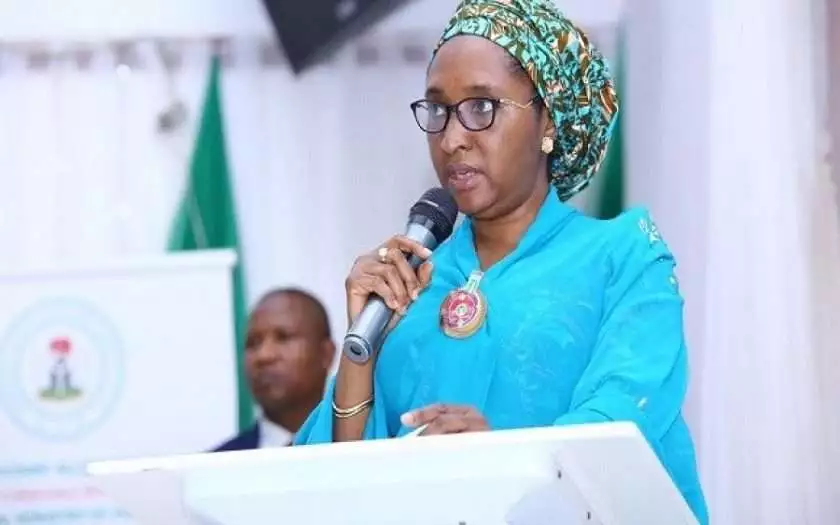The federal government has disbursed over N43 billion to 24 states in the country, ignoring Lagos and 11 other states for their failure to achieve the requirements to qualify for the World Bank grant.
The minister of finance, Budget and National Planning, Zainab Ahmed said in Abuja, the nation’s capital that states who got the grant were eligible for the results they achieved in 2018 under the performance-based grant component of the World Bank-Assisted States Fiscal Transparency, Accountability and Sustainability (SFTAS) Programme-for-Results.
States that met the eligibility criteria, the minister said are Abia, Adamawa, Bauchi, Benue, Delta, Edo, Ekiti, Enugu, Gombe, Jigawa, Kaduna, Kano, Katsina, Kebbi, Kogi, Kwara, Niger, Ondo, Ogun,Oyo, Osun, Sokoto, Taraba and Yobe States.
While the 12 States that missed out on the 2018 grants because they did not meet the Eligibility Criteria are Akwa Ibom, Anambra, Bayelsa, Borno, Cross River, Ebonyi, Imo, Lagos, Nasarawa, Plateau, Rivers and Zamfara States.
The grant is financed with a loan of US$750 million from the International Development Association (IDA), a member of the World Bank Group.
According to the minister “the disbursement followed the participation of the 24 eligible states in the recent Annual Performance Assessment (APA).”
She stated that the assessment was done by the Office of the Auditor- General for the Federation (OAuGF) as the Independent Verification Agent (IVA), in collaboration with a third party firm, JK Consulting Limited and the SFTAS Programme Coordination Unit (PCU).
The minister further added that the SFTAS Programme was established by the Federal Government with a loan of $750 million to support states through the provision of performance-based grants of $700 million.
In addition, a technical assistance worth $50 million was also factored into the grant “to enhance their capacity to achieve the Disbursement Linked Indicators (DLIs) i.e. the Programme results,” according to a statement signed by the Ministry’s Director of Press and Public Relations. Hassan Dodo.
“The DLIs are derived from the country’s 22-Point Fiscal Sustainability Plan and the 14 Open Government Partnership (OGP) commitments aimed at strengthening fiscal transparency, accountability and sustainability across states, the minister said.
She stated that for states to qualify for the grant they must meet the Eligibility Criteria (EC) through online publication of the approved annual budget and audited financial statement for the previous year and the DLIs that eligible States receive grants for achieving.
Some of the DLIs include: improved financial reporting and budget reliability; increased openness and citizens’ engagement in the budget process; improved cash management and reduced revenue leakages through implementation of State Treasury Single Account (TSA).
Other conditions to be met to qualify for the grant are: strengthened Internally Generated Revenue (IGR) collection; biometric registration and Bank Verification Number (BVN) used to reduce payroll fraud; improved procurement practices for increased transparency and value for money.
Also required are strengthened public debt management and fiscal responsibility framework; improved clearance/reduction of stock of domestic expenditure arrears; and improved debt sustainability.
The finance minister reiterated that “the World Bank-assisted SFTAS Programme is principally to strengthen fiscal management at the State level so as to ensure effective mobilization and utilization of financial resources to the benefit of their citizens in a transparent, accountable and sustainable manner, thereby reducing fiscal risks and encouraging a common set of fiscal behaviours.”
Discover more from The Source
Subscribe to get the latest posts sent to your email.








